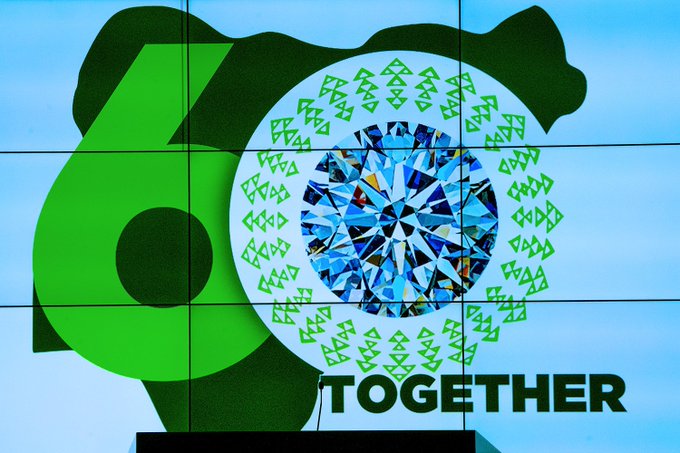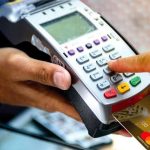It’s another Independence Day celebration. This time Nigeria clocked 60 in ‘style.’
Style! Really!
Well, Nigeria recently unveiled her 60th-anniversary logo.
Aside from the plagiarism allegation, the logo is indeed a unique piece.
So aside from her anniversary logo, what else changed?
We believe several thoughts often run through the mind on ceremonial days like this.

TheGuardian: President Muhammadu Buhari (extreme right), VP Yemi Osinbajo (extreme left) at the unveiling of Nigeria’s 60th-anniversary logo
Often, these thoughts only stay in loving memory, or perhaps the other way round.
Good enough, you are not alone in this.
We’ve tried to analyse Nigeria’s progress from her Independence Day.
Indeed, a lot has changed.
These changes cut across politics, Infrastructure, ICT, Economics, and their likes.
Really! It would take hundreds of book pages to describe these changes.
Relax! We do not intend to bore you out of patience.
This post will only address Nigeria’s digital essence in the last 60 years.
Again, what changed digitally?
Firstly, a Nation’s technology endowment is one of the indices that determine her growth.
Usually, infrastructure and technology advancement are the most apparent growth of a nation.
The narrative isn’t any different in Nigeria. In as much as it seems like she’s moving at a very slow pace.
Before we go further, these shreds of evidence indicate that the nation lacks technological advancement:
- Inability to produce heavy-duty equipment like tractors, drilling machines, trains and others.
- Lacking the technical knowhow to “explore and exploit her natural environment.” As such, she is dependent on foreign expertise to serve such purposes.
- Exportation of unfinished products to other countries e.g crude oil, cocoa seed, among others.
- Dependency on foreign players for spare parts for industrial machinery.
- Crude implements for agricultural activities are still largely implored for agriculture production.
- If she is still dependent on foreign countries for protective military hardware.
ALSO READ: Nigeria Federal Government Activates e-National ID Card: New Beginnings?
You will agree that Nigeria does not meet the majority of the criteria above.
Except for otherwise reasons, it’s affirmative that Nigeria is laidback in technology advancement.
Regardless, one of the beauties of technology is diversity.
Digitisation (automation), Internet penetration, and Data management are prominent aspects of technology.
Thankfully, Nigeria is not laidback to these ends.
Quick facts you should know
1. Nigeria has the highest internet penetration rate in Africa with almost 100-million internet users.
In comparison, over 50% of Nigeria’s population has access to digital technology.
Also, this percentage is close to the global IPR put at 53% as at 2019.
Statista projected that Nigeria will hit 65.3% IPR mark by 2025.
2. Currently, there are over 185 million mobile subscriptions in Nigeria – NIPC.
As such, the Nation is the 7th in the world with the highest number of mobile users.
3. On the downside, there is slightly above 20% of smartphone adoption in Nigeria.
However, Nigeria’s smartphone penetration is projected to hit 60% by the end of 2025.
4. Nigeria is also experiencing a consistent boost in her internet speed.
The nation currently ranks 112th in the global mobile internet speed index.
Thanks to the 3G and 4G technology made accessible for a better percentage of Nigeria’s internet users.
5. Also, social media penetrations is gradually increasing.
Currently, Nigeria has over 27 million active social media users.
This is about 13% penetration rate; considerably one of the highest in the region.
6. Although NCC targets 70% broadband penetration by 2021; Nigeria’s currently stands at 41.3%.
Other digital revolutions in Nigeria
Undoubtedly, Nigeria is seeing a boom in digital adoption.
While this is evident across various sectors, Telcos are the biggest beneficiary.
The current ICT administration, led by Dr. Isa Ali-Pantami, further contributed to this course.

TechEconomy: Honourable Minister of Communication and Digital Economy
Studies indicate that the biggest ICT breakthroughs took place under the Pantami administration.
Some of the highlights of Pantami’s digital achievement include the following;
- Creation of innovative Hubs
- Equipping young entrepreneurs and innovators with digital skills
- Establishment of community IT training centres
- Establishment of Tertiary Institution Knowledge Centre
- Partnership with both local and international stakeholders.
- The most recent is the launch of Nigeria Digital Portal and Mobile App. This, the ministry did in partnership with the Africa Development Bank (AfDB), and Microsoft.
Other areas such as finance and broadcasting have also witnessed enormous digital penetration.
The last decade saw the rise of alternative payment solutions like mobile-money and fintech applications.
According to McKinsey, “the full potential of fintech in Nigeria remains untapped.”
The source also reveals that fintech investments in Nigeria grew by $460 million in 2019.
Interestingly, most of these investments are foreign-based.
This also goes to show the number of digital investment opportunities that Nigeria possesses.
Similarly, the broadcasting sector is not left behind in this digital revolution.
The Federal Radio Corporation of Nigeria (FRCN) paved way for mainstream broadcasting in 1956.
Thereafter, the Nigeria Television Authority (NTA) hit the screen with visuals in 1977.
Over the years, there has been an increasing number of digital broadcasting.
In recent decades, paid TVs like DSTV, StarTimes, Iroko TV, e.t.c. are also prospering.
Digitization in Nigeria has proven to be a great course for positive economic growth.
How digitization will further impact Nigeria’s growth
The digital revolution is popularly described as the Fourth Industrial revolution.
According to findings, this will change the narrative of a nation’s socio-economic and political-economic landscape.
A research by World Bank (WB) stated as follows, that:
“Nigeria is capturing only a fraction of its digital economic potential”
In another research, WB said Nigeria has a large, young, and entrepreneurial population.
As such, “digital entrepreneurship could become an engine of economic transformation in Nigeria.”
This, according to WB, will set the country on a new growth trajectory.
With the above projections, it is almost impossible to isolate Nigeria’s digital essence.
Truthfully, the digital sector among a few others has experienced the most growth so far.
ALSO READ: Nigeria, Two Others Suffer Millions Of Cyber Attacks
In conclusion
While this is just another year of celebration, we hope for a better digitized Nigeria.
Cheers to more sustainable digital years ahead.
What do you think of Nigeria’s digital essence?
Kindly share with us in the comment section below.
Found this interesting? Share!

























 and then
and then